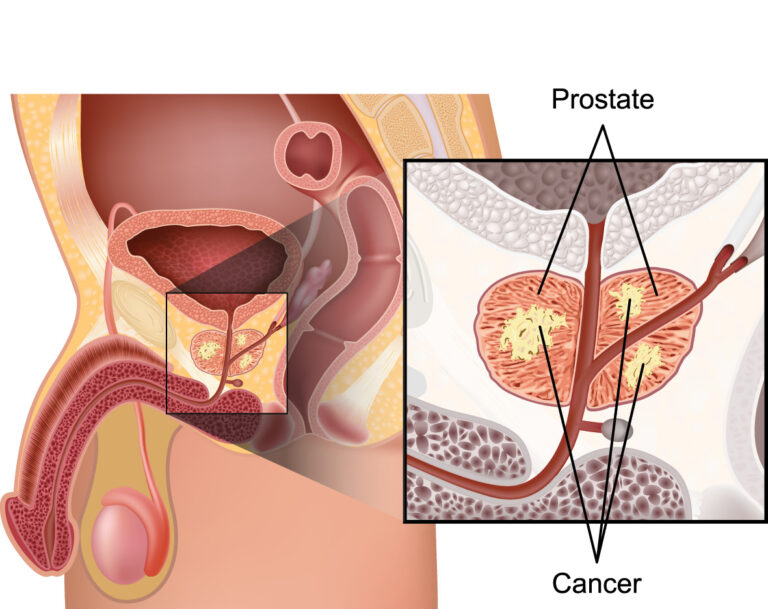Erectile Dysfunction in Tamil: எயிடெக்டில் செயலிழப்பு பற்றிய அறிக்கை

Understanding the Causes of Sexual Impotence

Sexual impotence, also known as erectile dysfunction (ED), is a common condition that affects many men worldwide. While it can be a source of frustration and distress, understanding the underlying causes is crucial in order to find appropriate solutions. ED can stem from a variety of factors, including both physical and psychological causes.
Physical causes of erectile dysfunction can include conditions such as diabetes, heart disease, obesity, and high blood pressure. These health issues can result in reduced blood flow to the penis, making it difficult to achieve or maintain an erection. Additionally, hormonal imbalances, such as low levels of testosterone, can also contribute to erectile difficulties. It is important to note that certain medications, such as those used to treat high blood pressure or depression, may have side effects that impact sexual function as well.
On the other hand, psychological factors can also play a significant role in the development of erectile dysfunction. Stress, anxiety, depression, and performance anxiety can create a cycle of negative emotions and thoughts, hindering sexual performance. Relationship issues, poor communication, or unresolved conflicts may also contribute to the development of ED. Seeking professional assistance from a healthcare provider, such as a gynecologist or urologist, can help to identify and address these psychological factors effectively.
Understanding the causes of sexual impotence is the first step towards finding appropriate solutions. By addressing both the physical and psychological aspects of erectile dysfunction, individuals can work towards improving their sexual health. In upcoming sections of this article, we will delve deeper into how medical advice, lifestyle choices, hormonal imbalances, chronic illness, and medications can impact sexual performance. Stay tuned for more information and actionable insights on this crucial topic.
The Importance of Seeking Medical Advice for Erectile Dysfunction

Erectile dysfunction (ED) is a common condition that affects millions of men worldwide. It is characterized by the inability to achieve or maintain an erection sufficient for sexual intercourse. While occasional difficulties with erections can happen to any man, persistent or chronic ED may indicate an underlying health issue that requires medical attention.
Seeking medical advice for erectile dysfunction is essential for several reasons. First and foremost, it can help identify and address any underlying physical conditions that may be contributing to the problem. Medical professionals, such as urologists, endocrinologists, or sexual health specialists, have the expertise and resources to conduct comprehensive evaluations and diagnostic tests to uncover the root causes of ED. This may include assessing cardiovascular health, hormone levels, neurological function, and any other relevant factors that could affect sexual performance.
Furthermore, medical advice can guide individuals on the most appropriate treatment options for their specific situation. Depending on the underlying cause of erectile dysfunction, treatment strategies can vary widely, ranging from lifestyle modifications to medication or, in some cases, surgical interventions. Seeking medical advice allows individuals to receive personalized guidance tailored to their unique needs, ensuring that they are making informed decisions about their sexual health.
Without proper medical attention, erectile dysfunction can significantly impact a man’s quality of life, as well as his intimate relationships. It can lead to feelings of frustration, anxiety, and even depression. Therefore, seeking medical advice at the earliest signs of ED can help prevent emotional distress and allow individuals to regain confidence and enjoyment in their sexual experiences.
In conclusion, the importance of seeking medical advice for erectile dysfunction cannot be overstated. Professionals in the field of sexual health possess the knowledge and expertise needed to investigate underlying causes, provide accurate diagnoses, and guide individuals towards appropriate treatment options. Delaying or avoiding seeking medical advice for ED may prolong the issue and hinder the opportunity for effective resolution. By taking proactive measures to address the condition, individuals can regain control over their sexual health and improve their overall well-being.
• Seeking medical advice for erectile dysfunction is crucial as it helps identify and address any underlying physical conditions that may be contributing to the problem.
• Medical professionals have the expertise and resources to conduct comprehensive evaluations and diagnostic tests to uncover the root causes of ED.
• This may include assessing cardiovascular health, hormone levels, neurological function, and other relevant factors that could affect sexual performance.
• Medical advice can guide individuals on the most appropriate treatment options for their specific situation.
• Treatment strategies can vary widely depending on the underlying cause of erectile dysfunction, ranging from lifestyle modifications to medication or surgical interventions.
• Seeking medical advice allows individuals to receive personalized guidance tailored to their unique needs, ensuring informed decisions about their sexual health.
• Without proper medical attention, erectile dysfunction can significantly impact a man’s quality of life and intimate relationships.
• It can lead to feelings of frustration, anxiety, and even depression.
• Seeking medical advice at the earliest signs of ED can help prevent emotional distress and allow individuals to regain confidence in their sexual experiences.
Recognizing the Psychological Factors Contributing to Erectile Dysfunction
Erectile dysfunction (ED) is a complex condition that can be caused by a variety of factors, both physical and psychological. While it is commonly known that physical factors such as cardiovascular disease and diabetes can contribute to the development of ED, the psychological aspects should not be overlooked. Psychological factors can have a significant impact on a man’s ability to achieve and maintain an erection, and recognizing these factors is crucial in understanding and treating the condition.
One of the main psychological factors that contribute to ED is stress and anxiety. Stress can disrupt the normal functioning of the body, including the blood flow to the penis, which is essential for achieving an erection. Anxiety, on the other hand, can lead to performance anxiety, where a man becomes overly worried about his sexual performance, leading to self-doubt and erectile difficulties. Additionally, relationship problems, such as poor communication or unresolved conflicts, can also play a role in ED. It is important to recognize these psychological factors and address them in order to effectively manage and treat erectile dysfunction.
Certainly! Here’s a concise data table on recognizing the psychological factors contributing to erectile dysfunction:
| Psychological Factors in Erectile Dysfunction | Description | Source |
|---|---|---|
| Performance Anxiety | Anxiety related to sexual performance, fear of inadequacy, or concerns about satisfying a partner can contribute to erectile dysfunction. | International Journal of Impotence Research – Psychological and interpersonal dimensions of sexual function and dysfunction |
| Stress and Mental Health Conditions | High levels of stress, depression, anxiety disorders, or other mental health conditions can impact sexual function and contribute to erectile issues. | Mayo Clinic – Erectile Dysfunction: Psychological Factors |
| Relationship Issues | Problems in a relationship, communication issues, or unresolved conflicts may lead to emotional stress and negatively affect sexual performance. | Cleveland Clinic – Relationship Issues and Erectile Dysfunction |
| Low Self-Esteem and Body Image Concerns | Negative perceptions of oneself, low self-esteem, or body image concerns can contribute to psychological factors impacting sexual confidence and function. | International Journal of Impotence Research – Erectile dysfunction and correlated factors in Brazilian men aged 18–40 years |
| Past Trauma or Sexual Abuse | Previous traumatic experiences, including sexual abuse or assault, can have lasting psychological effects and contribute to sexual dysfunction. | Journal of Trauma & Dissociation – The Impact of Trauma on Male Sexual Dysfunction |
Recognizing and addressing these psychological factors is crucial for a holistic approach to treating erectile dysfunction. Consultation with a healthcare professional, including a mental health professional, is recommended for comprehensive assessment and support.
Lifestyle Choices and Their Impact on Erectile Health

Maintaining a healthy lifestyle can significantly impact erectile health, as certain lifestyle choices can either support or hinder sexual function in men. One crucial aspect to consider is maintaining a balanced diet. A diet rich in fruits, vegetables, whole grains, and lean proteins not only contributes to overall well-being but can also improve erectile function. On the other hand, consuming a high-fat, high-sugar diet has been associated with an increased risk of erectile dysfunction (ED) due to its negative impact on blood flow and cardiovascular health. It is therefore recommended to prioritize nutrient-dense foods and limit processed and unhealthy choices.
Regular physical activity also plays a vital role in promoting erectile health. Engaging in moderate-intensity aerobic exercises, such as brisk walking, jogging, or cycling, can enhance blood circulation, reduce the risk of cardiovascular diseases, and improve sexual performance. Additionally, incorporating strength training exercises, which target the pelvic floor muscles, can help improve erectile function. However, it is essential to consult with a healthcare professional before starting any exercise regimen, particularly if there are underlying conditions or concerns about physical capability. With proper guidance, creating a personalized exercise routine that suits individual needs and capabilities can contribute to overall well-being and maintain healthy erectile function.
Exploring the Role of Hormonal Imbalance in Sexual Dysfunction
Hormonal imbalance can be a significant factor contributing to sexual dysfunction in men. Testosterone, the primary male sex hormone, plays a crucial role in maintaining a healthy libido and sexual function. When the body fails to produce enough testosterone or if there is an imbalance between testosterone and other hormones, it can lead to a range of sexual problems.
One common consequence of hormonal imbalance is erectile dysfunction (ED), where a man has difficulty achieving or maintaining an erection. Testosterone deficiency can directly affect the vascular and neurological systems involved in achieving an erection, leading to decreased blood flow to the penis and impaired nerve signaling. Additionally, imbalances in other hormones, such as thyroid hormones or cortisol, can also influence sexual function.
Research suggests that a variety of factors can contribute to hormonal imbalances in men. Aging is one such factor, as testosterone levels naturally decline with age. Certain medical conditions, including obesity, diabetes, and hypogonadism, can also disrupt hormone production and balance. Environmental factors, such as exposure to endocrine-disrupting chemicals, can further contribute to hormonal imbalances.
Addressing hormonal imbalances requires a comprehensive approach that may include lifestyle changes, hormone replacement therapy, or medications. Consulting with a qualified healthcare professional, such as a urologist or endocrinologist, is crucial for proper diagnosis and personalized treatment. By identifying and correcting hormonal imbalances, individuals can potentially improve their sexual health and overall well-being.
The Connection Between Chronic Illness and Erectile Dysfunction
Chronic illness can have a significant impact on a man’s sexual health, including the development of erectile dysfunction (ED). Numerous medical conditions have been linked to ED, including cardiovascular disease, diabetes, and neurological disorders. Understanding the connection between chronic illness and erectile dysfunction is crucial for both patients and healthcare providers in order to effectively address and manage this condition.
Cardiovascular disease, such as hypertension and atherosclerosis, can restrict blood flow to the penis, making it difficult to achieve and maintain an erection. Research has demonstrated a strong association between heart disease and ED, with one study reporting that men with a history of heart attack were almost 2.5 times more likely to experience ED compared to those without heart disease (Jackson et al., 2006). Diabetes, too, can contribute to erectile dysfunction through its effects on blood vessels and nerves. Studies have shown that up to 75% of men with diabetes experience some degree of erectile dysfunction (Malavige & Levy, 2009). Neurological disorders, such as multiple sclerosis and Parkinson’s disease, can disrupt the intricate nerve pathways involved in the sexual response and result in erectile dysfunction.
It is essential for individuals with chronic illnesses to seek medical advice and treatment for erectile dysfunction. Addressing the underlying health condition can not only improve overall well-being but also potentially enhance sexual function. Healthcare providers play a critical role in identifying and managing the connection between chronic illness and ED. By assessing a patient’s medical history, conducting a thorough physical examination, and considering relevant laboratory tests, healthcare professionals can determine the most appropriate treatment approach. This may involve a combination of lifestyle modifications, medication, psychotherapy, and sometimes specialized interventions such as penile implants or vascular surgery.
References:
– Jackson, G., Boon, N., Eardley, I., Kirby, M., Dean, J., Hackett, G., … Rosen, R. (2006). Erectile dysfunction and coronary artery disease prediction: Evidence-based guidance and consensus. International Journal of Clinical Practice, 60(3), 321-328.
– Malavige, L. S., & Levy, J. C. (2009). Erectile dysfunction in diabetes mellitus. Journal of Sexual Medicine, 6(5), 1232-1247.
Unveiling the Effects of Medications on Sexual Performance
In the realm of sexual health, medications can play a significant role in influencing sexual performance. It is important to understand the effects that certain medications may have on sexual function to make informed decisions about one’s health. Some medications, such as antidepressants and antihypertensives, have been found to contribute to sexual dysfunction.
Antidepressants, specifically selective serotonin reuptake inhibitors (SSRIs), are commonly prescribed for the treatment of depression and anxiety. While these medications can effectively manage symptoms, they may also lead to unwanted side effects, including difficulties with sexual function. Studies have shown that SSRIs can inhibit sexual desire, delay ejaculation, and impair erectile function in men. It is crucial to discuss these potential effects with a healthcare professional to determine the most appropriate course of treatment.
Similarly, antihypertensive medications, often used to control high blood pressure, have been associated with sexual dysfunction. Beta blockers, a common class of antihypertensives, have been shown to decrease libido, impair erectile function, and interfere with orgasm. These effects can have a detrimental impact on sexual performance and satisfaction. As with antidepressants, discussing these concerns with a healthcare provider is essential to find a balance between managing blood pressure and maintaining healthy sexual function.
It is important to note that not all medications have negative effects on sexual performance. In some cases, medication may actually improve sexual function. For example, phosphodiesterase-5 (PDE5) inhibitors, such as sildenafil (Viagra), tadalafil (Cialis), and vardenafil (Levitra), are commonly prescribed to treat erectile dysfunction. These medications work by enhancing the effects of nitric oxide, a chemical that relaxes muscles in the penis and promotes blood flow. PDE5 inhibitors have been shown to be effective in improving erectile function in men with various underlying causes of erectile dysfunction.
In conclusion, medications can have a significant impact on sexual performance. It is important to have open and honest discussions with healthcare professionals about any concerns or potential side effects. Understanding the effects of medications on sexual function can empower individuals to make informed decisions about their sexual health.
Discussing the Link between Age and Erectile Dysfunction
As men age, it is not uncommon for them to experience changes in their sexual function. Erectile dysfunction (ED), the inability to achieve or maintain an erection sufficient for sexual activity, is a common concern among older men. While the prevalence of ED increases with age, it is important to note that it is not an inevitable part of aging. Rather, it is often caused by underlying health conditions or lifestyle factors that become more common as men grow older.
One of the primary reasons why age is linked to an increased risk of erectile dysfunction is the natural occurrence of certain health conditions that can affect sexual function. For instance, as men age, they are more likely to develop cardiovascular diseases, such as hypertension and atherosclerosis, which can impair blood flow to the penis. Additionally, conditions like diabetes and obesity, which become more prevalent with age, can also contribute to the development of ED. Aging also brings about hormonal changes in men, including a decline in testosterone levels, which can impact sexual function.
The Role of Stress and Anxiety in Impeding Sexual Function
Sexual function is a complex interplay of physiological and psychological factors, and stress and anxiety can significantly impede this delicate balance. When individuals experience intense stress or anxiety, it can lead to various changes in the body, affecting hormone levels, blood flow, and overall sexual response.
One way stress and anxiety can impact sexual function is by increasing the production of cortisol, commonly known as the stress hormone. Elevated levels of cortisol can disrupt the normal hormonal balance in the body, leading to decreased libido and difficulties in achieving or maintaining an erection. Additionally, stress and anxiety can cause the body to release adrenaline, which can constrict blood vessels and reduce blood flow to the genital area, making it difficult to achieve and sustain an erection.
Furthermore, stress and anxiety can have a negative impact on psychological well-being, leading to feelings of self-doubt, performance anxiety, and a lack of sexual confidence. These emotional factors can further exacerbate erectile dysfunction and hinder sexual function. It is essential to address both the physiological and psychological aspects of stress and anxiety to effectively manage and overcome the challenges they pose to sexual health. By seeking appropriate medical advice and implementing coping strategies, individuals can address these issues and restore healthy sexual function.
Exploring Alternative Treatments for Erectile Dysfunction
When it comes to treating erectile dysfunction (ED), many individuals prefer to explore alternative options before turning to conventional medical interventions. Alternative treatments for ED focus on natural remedies, lifestyle changes, and complementary therapies that may help improve sexual function and overall reproductive health. While scientific evidence for the effectiveness of these alternative treatments is limited, they can be a viable option for those seeking non-pharmaceutical solutions.
One alternative treatment that has gained popularity is the use of herbal remedies. Certain herbs such as ginkgo biloba, Panax ginseng, and horny goat weed have been traditionally used to improve sexual performance. These herbs are believed to enhance blood flow to the penis, relax smooth muscles, and boost libido. However, it is important to note that the scientific evidence supporting the effectiveness of these herbs is still limited and more research is needed to establish their safety and efficacy for treating ED. Before incorporating herbal remedies into your routine, it is crucial to consult with a healthcare professional to ensure they won’t interfere with any medications or pose any health risks.
The Benefits and Risks of Medications for Erectile Dysfunction
Medications for erectile dysfunction (ED) are widely used to help improve sexual performance and restore confidence in men experiencing difficulties in achieving or maintaining an erection. These medications work by increasing blood flow to the penis, promoting a firm and lasting erection. One of the main benefits of these medications is their effectiveness. Clinical studies have shown that medications such as sildenafil (Viagra), tadalafil (Cialis), and vardenafil (Levitra) have a success rate of around 70-80% in men with ED. This makes them a valuable option for those seeking immediate improvement in their sexual function.
However, it is important to recognize that medications for erectile dysfunction also come with certain risks and considerations. Common side effects include headache, facial flushing, dizziness, nasal congestion, and indigestion. These side effects are usually mild and temporary, but some individuals may experience more severe adverse reactions. It is crucial to consult with a healthcare professional before taking these medications, especially if you have certain medical conditions such as heart disease, high blood pressure, or liver problems. Combining these medications with nitrate drugs, commonly used to treat chest pain, can lead to a sudden and dangerous drop in blood pressure. Therefore, it is vital to disclose all medical history and medications being taken to ensure safe usage of these medications for erectile dysfunction.
Addressing the Emotional Impact of Erectile Dysfunction on Relationships
The emotional impact of erectile dysfunction (ED) on relationships can be significant, affecting both the individual experiencing ED and their partner. It is important to address these emotional aspects alongside the physical symptoms to promote overall well-being and relationship satisfaction.
For individuals with ED, feelings of frustration, embarrassment, and low self-esteem can arise due to the inability to achieve or maintain an erection. This can lead to a diminished sense of masculinity and a fear of rejection or inadequacy. It is crucial for those affected by ED to open up about their feelings and seek support from their partner and healthcare professionals.
Partners of individuals with ED may also experience a range of emotions, including confusion, sadness, and a sense of personal responsibility. It is essential for partners to approach the situation with empathy and understanding, communicating openly about their feelings and concerns. Building a strong support system and seeking professional counseling can be beneficial for both partners as they navigate the emotional challenges associated with ED.
Tips for Maintaining Sexual Health and Preventing Erectile Dysfunction.
Maintaining sexual health and preventing erectile dysfunction require a holistic approach that encompasses various aspects of well-being. One crucial factor to consider is maintaining a healthy lifestyle through regular exercise and a balanced diet. Engaging in physical activities such as brisk walking, jogging, or swimming not only promotes overall cardiovascular health but also enhances blood circulation to the genital area, which is essential for achieving and sustaining an erection. Additionally, incorporating nutritious foods into your diet, such as fruits, vegetables, whole grains, lean proteins, and healthy fats, can positively impact sexual function by providing essential nutrients and antioxidants that support optimal sexual health.
Another important aspect to consider is managing stress levels effectively. Chronic stress can contribute to the development and worsening of erectile dysfunction. Engaging in stress-reducing activities such as meditation, deep breathing exercises, yoga, or engaging in hobbies that bring joy and relaxation can help alleviate stress and improve overall sexual well-being. Seeking professional help from therapists or counselors can also be beneficial in managing stress and addressing any underlying psychological factors that may be contributing to sexual problems.
What are the main causes of erectile dysfunction?
There are multiple causes for erectile dysfunction, including physical factors such as diabetes, heart disease, obesity, and hormonal imbalances. Psychological factors such as stress, anxiety, and depression can also contribute to erectile dysfunction.
When should I seek medical advice for erectile dysfunction?
It is important to seek medical advice if you experience persistent difficulties in achieving or maintaining an erection. This can help identify any underlying health conditions that may be causing the problem and allow for appropriate treatment.
How do psychological factors contribute to erectile dysfunction?
Psychological factors such as stress, anxiety, and depression can interfere with the brain signals that initiate and maintain an erection. This can result in erectile dysfunction.
How do lifestyle choices affect erectile health?
Unhealthy lifestyle choices such as smoking, excessive alcohol consumption, and drug abuse can damage blood vessels and nerves, leading to erectile dysfunction. Maintaining a healthy diet and engaging in regular exercise can help improve erectile health.
Can hormonal imbalances cause sexual dysfunction?
Yes, hormonal imbalances can contribute to sexual dysfunction. Low testosterone levels, for example, can affect sexual desire and lead to erectile dysfunction.
Is there a link between chronic illness and erectile dysfunction?
Yes, chronic illnesses such as diabetes, heart disease, high blood pressure, and multiple sclerosis can increase the risk of erectile dysfunction. These conditions can affect the blood flow and nerve impulses necessary for achieving and maintaining an erection.
Do certain medications affect sexual performance?
Yes, certain medications, such as antidepressants, antihistamines, and blood pressure medications, can have side effects that impact sexual performance. It is important to discuss any concerns with your healthcare provider.
Does age play a role in erectile dysfunction?
Yes, as men age, the risk of developing erectile dysfunction increases. However, erectile dysfunction is not an inevitable part of aging and can often be treated or managed successfully.
How do stress and anxiety affect sexual function?
Stress and anxiety can interfere with the brain signals that trigger an erection, making it difficult to achieve or maintain one. Learning stress reduction techniques and seeking support can help improve sexual function.
Are there alternative treatments for erectile dysfunction?
Yes, alternative treatments such as acupuncture, herbal supplements, and certain lifestyle changes may help improve erectile function. However, it is important to consult with a healthcare professional before trying any alternative treatments.
What are the benefits and risks of medications for erectile dysfunction?
Medications for erectile dysfunction, such as Viagra, have proven to be effective in many cases. However, they may have side effects and interactions with other medications. It is crucial to consult with a healthcare provider to determine if medication is the right option for you.
How does erectile dysfunction impact relationships?
Erectile dysfunction can have a significant emotional impact on both partners in a relationship. It can lead to feelings of frustration, decreased self-esteem, and strained intimacy. Open communication and seeking support can help address the emotional impact on relationships.
What are some tips for maintaining sexual health and preventing erectile dysfunction?
Some tips for maintaining sexual health include maintaining a healthy lifestyle, managing stress levels, communicating openly with your partner, seeking medical advice when needed, and exploring different treatment options if erectile dysfunction occurs.






